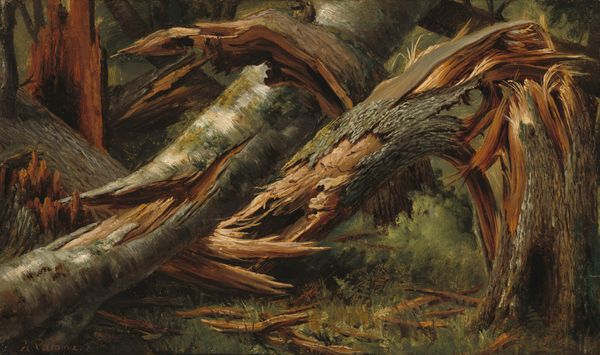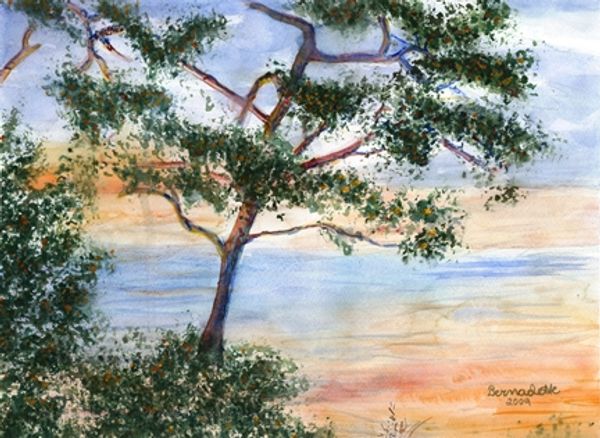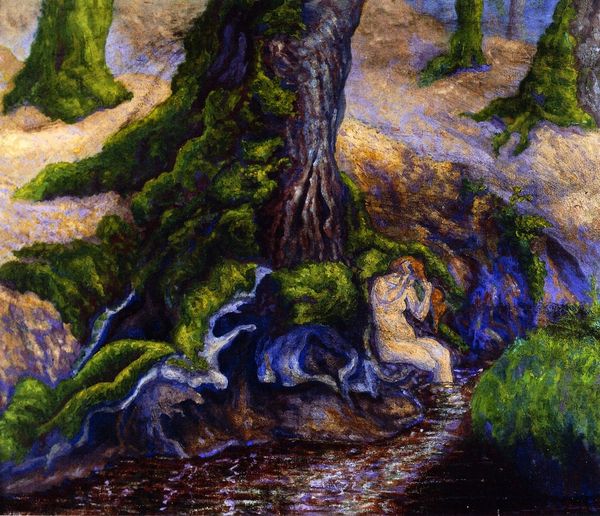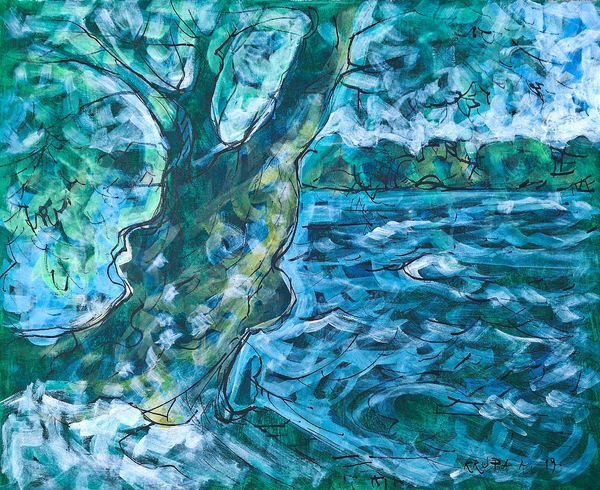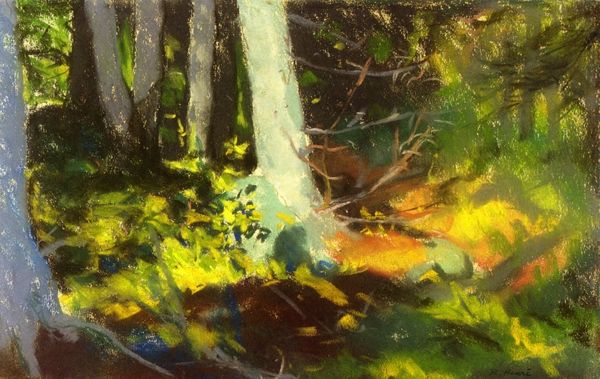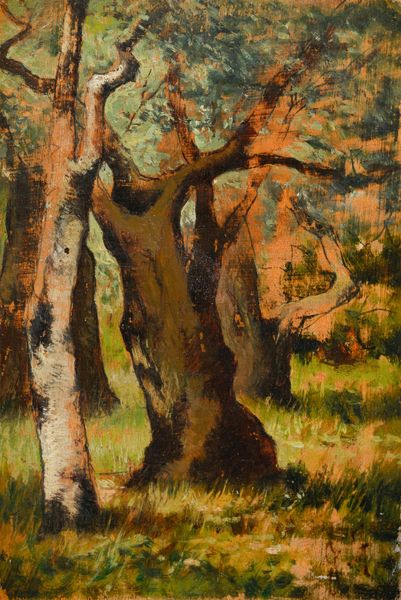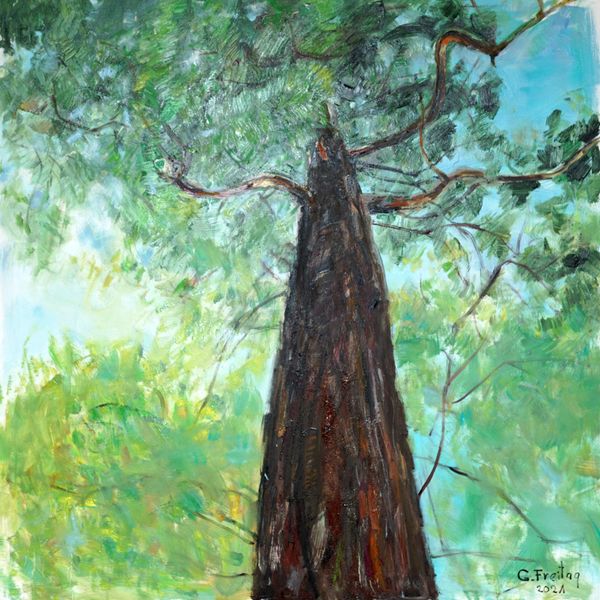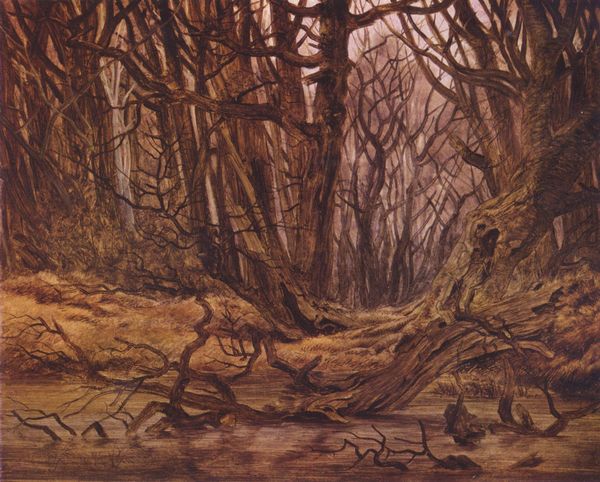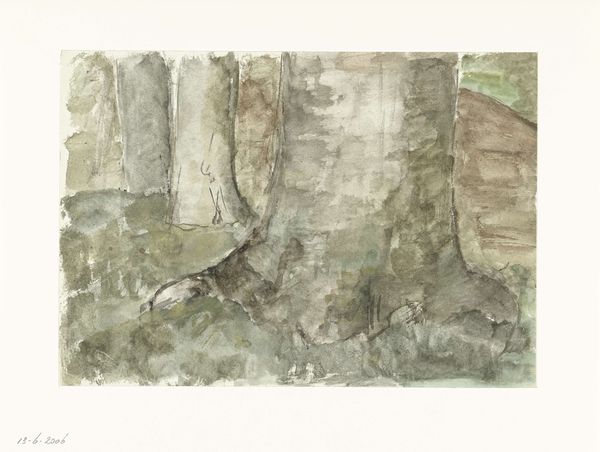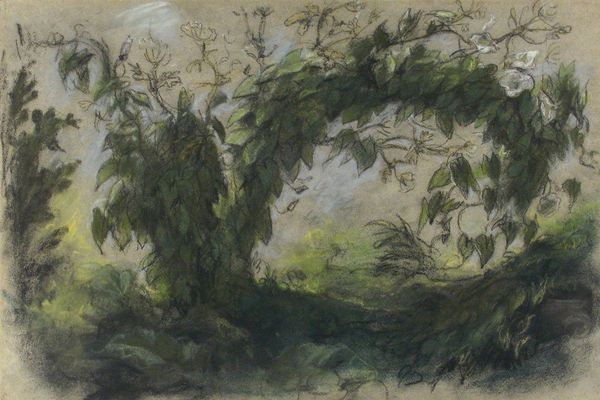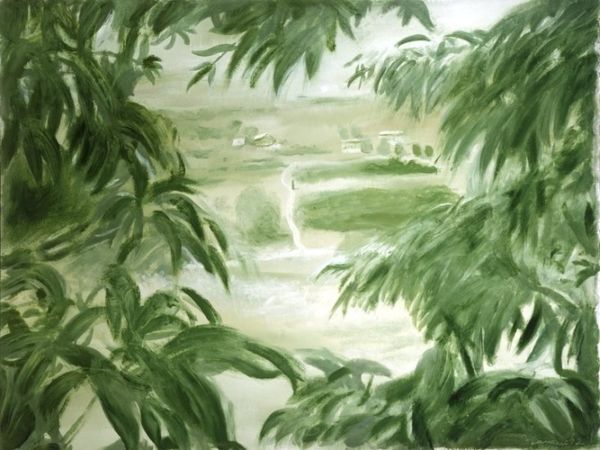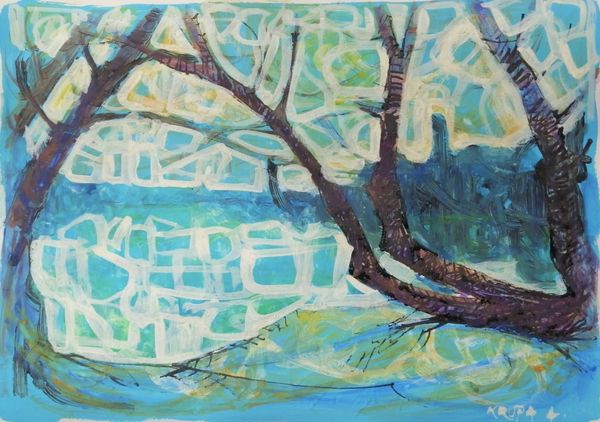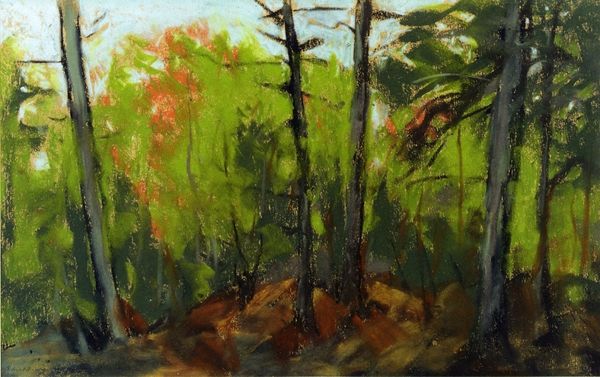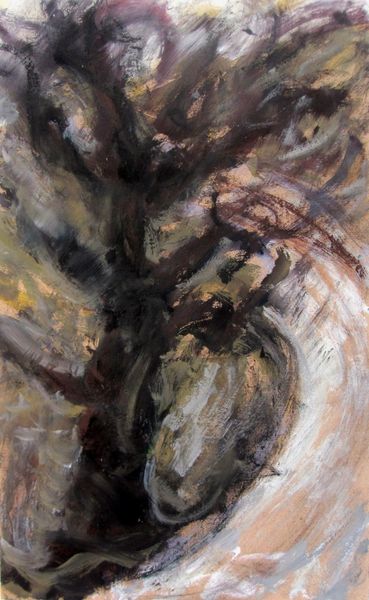
oil-paint, watercolor
#
tree
#
oil-paint
#
landscape
#
possibly oil pastel
#
oil painting
#
watercolor
#
acrylic on canvas
#
water
#
watercolor
#
realism
Copyright: Jamie Wyeth,Fair Use
Curator: Here we have Jamie Wyeth’s “Submerged” from 1975. It looks to be rendered with oil paint, a rather captivating landscape piece. Editor: It's immediately striking. There’s a certain tension. A feeling of hidden things lurking just beneath the surface. The play of light is fantastic. Curator: Indeed. The composition is quite dynamic, almost cinematic in how the light drapes over the fallen tree trunk. We can see the interplay between water, light and decay here. Editor: The tree itself—it feels almost totemic. Fallen, yet sprouting new growth, suggesting resilience and the cyclical nature of life. A rebirth motif, maybe? And the water seems… almost menacing, but not quite. It's ambiguous. Curator: Perhaps hinting at the artist's view of nature itself—simultaneously beautiful and indifferent, as both creator and destroyer. It could be that Wyeth is consciously referencing the history of American landscape painting, subverting the Hudson River School's idealized scenes by depicting nature in a less romantic, more realistic light. Editor: That fallen tree really pulls me in. It's like an ancient boundary marker, half-consumed by the waters, reminding us of lost stories and things forgotten. Water is often associated with the unconscious in symbolism, with emotions and intuition. I can almost imagine faces in that root system. Curator: And don’t discount the social currents flowing through art at that time. By '75 the environmental movement was gaining serious traction; Wyeth's artwork may even be an expression of ecological anxieties or awareness. A warning. Editor: The visual weight he gives that single log implies an element of time passing—a constant state of slow transformation from tree to… something else. Curator: Yes, and the piece also raises an interesting challenge to the notion of picturesque landscapes and prompts considerations of how industrialization, even suburban sprawl can disrupt our interaction with natural world. It is something worth discussing. Editor: Well, it definitely lingers with you. A compelling interplay between naturalism and deeper, almost dreamlike content. It seems much more complex than what initially meets the eye. Curator: I concur. It's a piece that truly resonates, given the social and historical context, allowing you to reflect upon what you may have taken from it in regards to Wyeth's concerns.
Comments
No comments
Be the first to comment and join the conversation on the ultimate creative platform.
